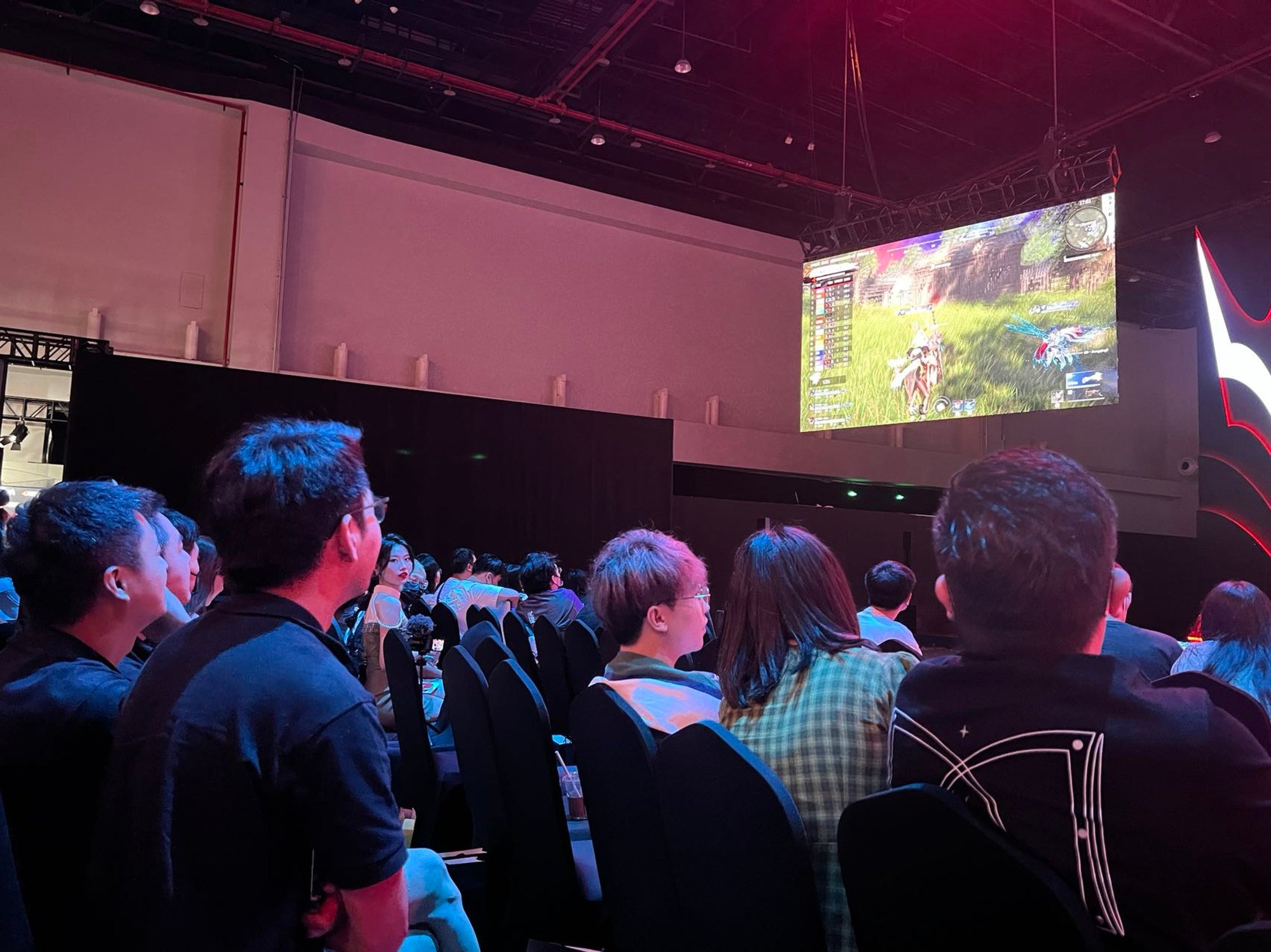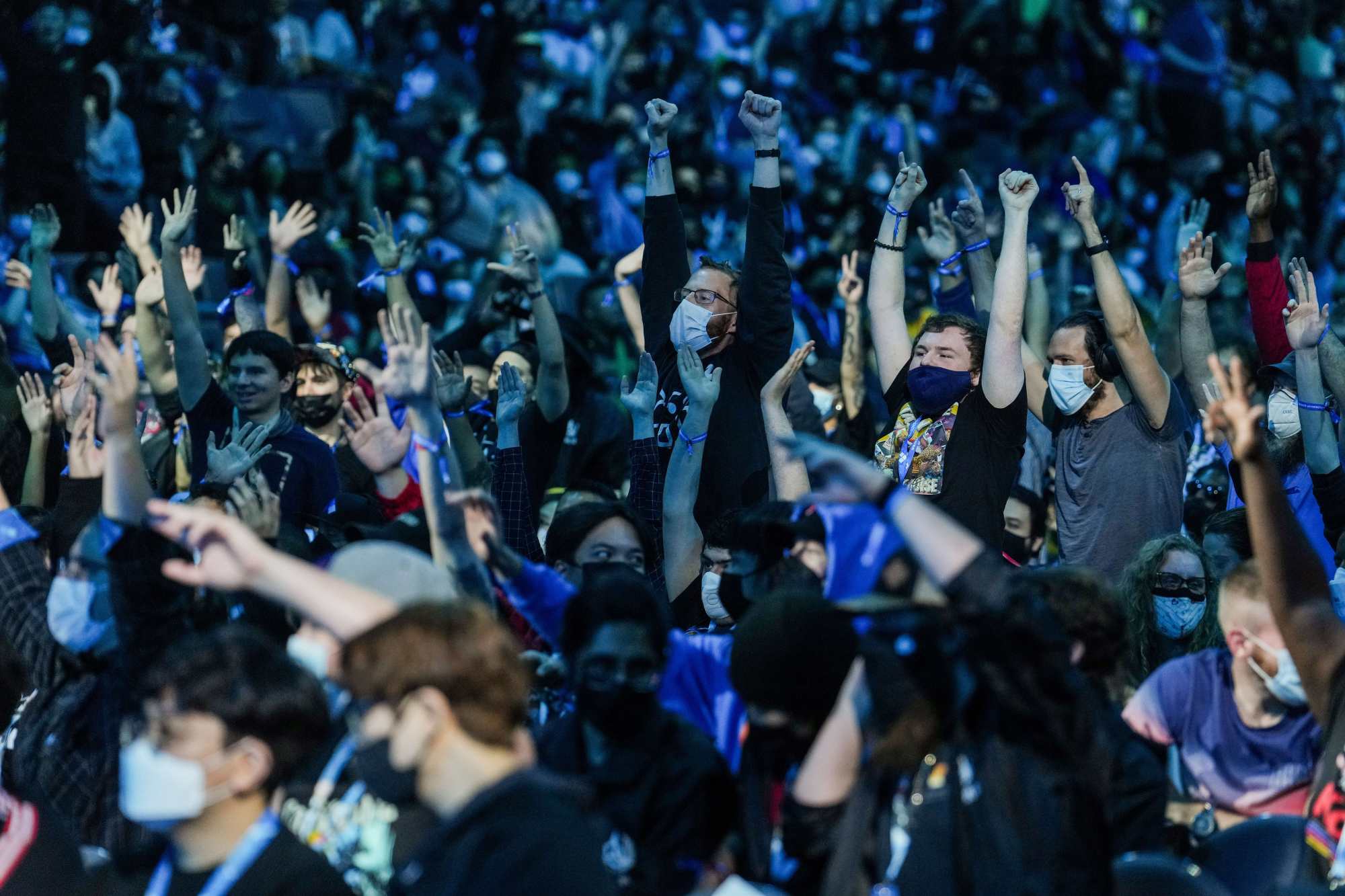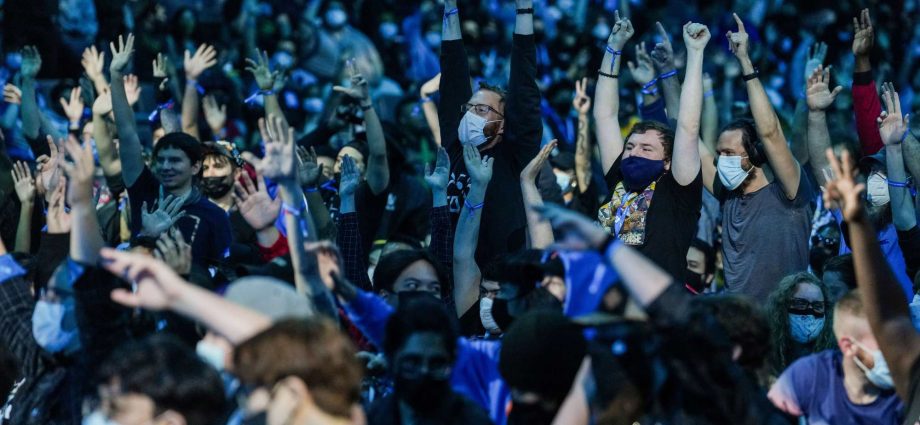China’s esports market, which is the world’s largest, has taken a hit from the country’s rigid Covid-19 control measures, according to industry insiders, while being little affected by licensing restrictions on new video games.
The struggle to keep esports alive and kicking in the world’s largest video gaming market has been particularly tough in terms of staging offline events in cities, hosting audiences and communicating with various clubs because of ongoing pandemic controls, according to Zhao Mingyi, general manager of major game publisher NetEase’s esports unit, which was started in 2017 and now has more than 300 employees.
NetEase has held four rounds of competition for Naraka: Bladepoint, an action-adventure battle royale game released last July, but has not been able to sell a single audience ticket to this event so far.
“It is really important for an esports competition to host audiences,” Zhao said. “Through large-scale offline competitions, we would be able to keep close contact with our fans and hear their feedback. It is also a good experience for players to hear fans cheer offline.”

Last week, only a dozen invited fans were able to watch live the finals of the Naraka: Bladepoint Pro League S1 2022 held in Shanghai. Most of the tournament’s audience ended watching the matches via streaming video on platforms such as Bilibili, Douyu and Huya. Matches of the popular League of Legends Pro League have been held without a live audience in Shanghai.
By contrast, esports events in the United States, such as the EVO 2022 Tekken 7 tournament in Las Vegas, have been drawing large audiences. Matches are also aired on the tournament’s official Twitch channel.
“In the first half of this year, Covid-19 has profoundly affected the development of the esports industry,” said Tang Jiajun, director of the Chinese Esports Working Council, which is the country’s semi-official esports industry association.
“It is difficult to carry out offline events and activities,” Tang said, adding that “supply of esports content, public opinion influence and commercial income have all been impacted to varying degrees”.
The stakes are high for China’s esports market to continue to develop, several months after the local industry celebrated Shanghai-based professional esports team Edward Gaming for winning the 2021 League of Legends World Championship finals in Reykjavik, capital of Iceland.
From January to June, the revenue of China’s esports market decreased 10.12% year on year to 76.5bil yuan (RM50.47bil), its first decline in five years, according to data from the country’s semi-official esports industry association.
Income generated from live streaming, tournaments and esports clubs slid 2%, compared with growth of 23.7% in the same period last year. The local esports market counted a base of 487.4 million consumers in the first half of this year.
That decline was attributed to the strict enforcement of Covid-19 lockdowns and other control measures in major Chinese cities, including Shanghai, Beijing and Shenzhen, as local governments tried to prevent the spread of the highly infectious Omicron variant.

Shanghai, which hosted about 40% of esports competitions in the first half of this year, went under a citywide lockdown from April to June that affected its entire 25 million population. Although the lockdown ended in July, stringent Covid-19 control measures remained in place.
NetEase’s Zhao said that almost all communications for the Naraka: Bladepoint tournament had to be conducted online because most esports clubs are based in Shanghai. The process was “quite time-consuming compared with face-to-face meeting”, Zhao said.
On the video gaming regulator’s slower pace of approving new titles, Zhao said the situation has not made any substantial difference to the staging of local esports tournaments.
“Esports mostly rely on games that are already published, so the slowdown in new game licences has had little effect,” Zhao said.
Still, NetEase and bigger video gaming rival Tencent Holdings have each not secured any licences for new titles to publish on the mainland. The continued drought in August marks 14 months since Tencent last had a new game approved and 13 months for NetEase. – South China Morning Post

